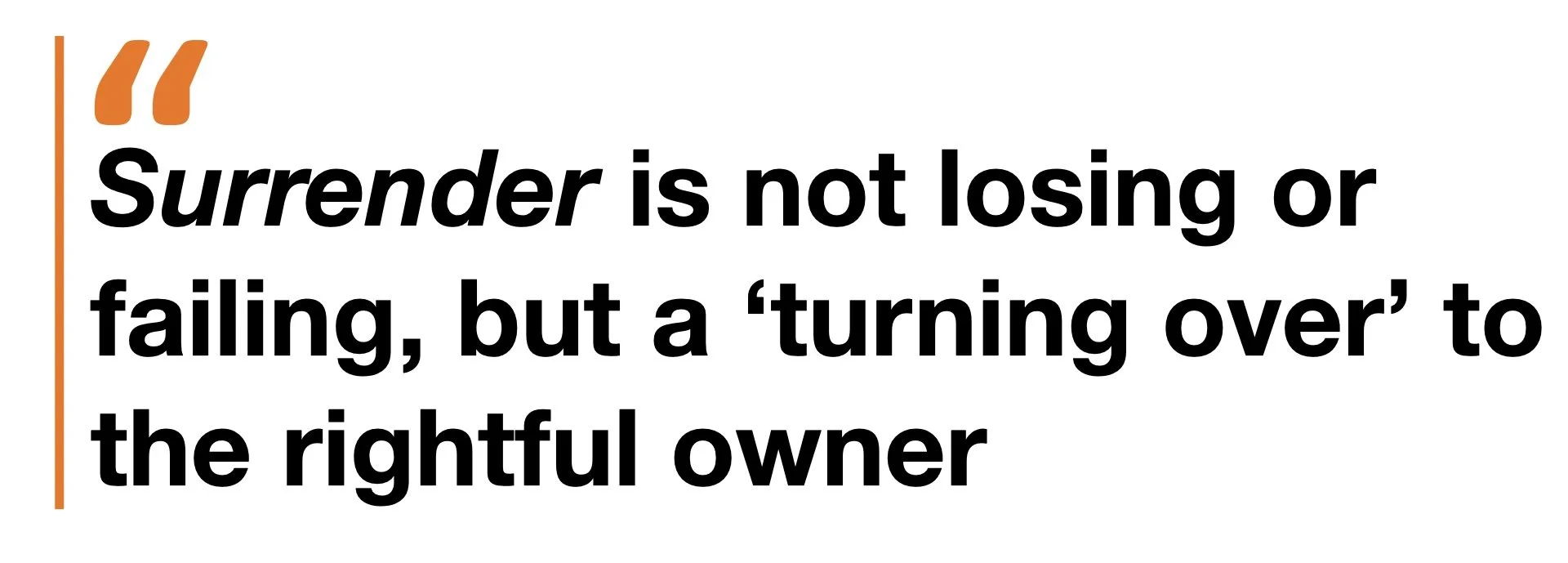Surrender
‘The greatness of a man's power is the measure of his surrender.’ William Booth
Eighty years ago, the Empire of Japan surrendered to the Allied Powers, ending World War II and its unimaginable death and suffering: perhaps 70-85 million people around the world lost their lives as a result of the deadliest military conflict in history.
The spring and summer of 1945 saw the decimation of Japan’s navy, the carpetbombing of Tokyo, and the dropping of atomic bombs over Hiroshima and Nagasaki, but the war continued until September 2nd, when representatives of the belligerent nations met on the deck of the USS Missouri to sign the Japanese Instrument of Surrender.
While Japan ‘lost’ the conflict to the victorious Allies, the state of war ended only with the signing of the document—an agreement setting forth the terms of the unconditional surrender. It incorporated the provisions of the Potsdam Declaration, which not only directed the disarming of Japanese military forces and an occupation of Japanese territory, but also contained guarantees that military members could return home to lead ‘peaceful and productive lives’, that the people would not be ‘enslaved as a race or destroyed as a nation’, and that the occupying forces would withdraw from Japan when it could no longer ‘rearm for war’ and ‘participation in world trade relations’ could peacefully resume.
It was those terms and provisions that facilitated Japan’s assent to end hostilities prior to a planned invasion of the Japanese home islands—operations that would have resulted in untold military and civilian deaths. ‘Fighting to the death’ was the preferred approach by many in Japanese leadership, and a rational course of action without guarantees from an adversary. If surrendering means only enslavement, torture, or utter destruction, continuing the fight to the last breath of the last survivor seems reasonable.
But when ‘surrender’ means dropping your weapons, as it were, in exchange for a pathway forward out of destruction and into a peaceful future, it is in essence not ‘losing’ (as facts on the ground prove that has already occurred), but rather a rightful response to circumstances.
The word itself confirms this.
Surrender can be defined as ‘ceasing resistance to an enemy or opponent and submitting to their authority’—a definition implying weakness, failure, defeat, and other concepts anathema to our ego. But it is also the (more neutral) ‘act of giving the control or use of something to someone else’, when one surrenders possession of an object or its use to its legal owner, such as in the case of a policy or a lease.
And this appears to be closer to the essence of the idea.
The term surrender comes to us from the Old French surrendre, meaning ‘to deliver over’ (sur- ‘over’ + rendre ‘give back’). This was from the Latin reddere meaning ‘to give back, return, restore’ (from re- ‘back’ + dare ‘to give’).
Surrender, it seems, is not to fail—it is to turn something over to a rightful owner.
This became clear to Emperor Hirohito by August of 1945. The Allies had destroyed Japan’s combat and defense capabilities, becoming the de facto ‘owner’ of Japanese forces and territories: it was within the Allies’ power and prerogative to allow them to remain or to utterly annihilate them. The choice was to sign and unconditionally ‘deliver over’ its authority and assets to the victorious nations…or ‘face prompt and utter destruction’ of them, as the Potsdam Declaration put it.
And because of the terms and protections offered in exchange for that ‘delivering over’, within five decades of its post-war poverty and rubble, Japan became the world’s second-largest economy and one of the most stable democracies on the planet. A political and economic ‘resurrection’ from death to life unique in world history.
It is, perhaps, a geopolitical illustration of the surrender that is central to our sonship journey.
We’re theologically familiar with the truth that we were once enemies of God, separated from him by sin and death, far off but now brought near by the blood of the Son, who cultivates peace where there was a wall of hostility. We acknowledge that this grace has saved us, and that it is a gift.
But that is not yet the move from servanthood to sonship; it is not the fullness of surrender of a man beginning to identify as a son and heir.
For just as the younger son in the rubble of the far country saw himself as worthy only of being a servant and hired hand, the father provided a plan and a future as part of the surrender agreement—a robe to cover the shame of nakedness, a ring to restore authority and standing, and sandals to provide freedom and agency. He only had to receive them.
The elder son was bound to the fields in a state of conflict with the father’s mercy and his brother’s profligacy, working hard apart from the father to prove he could strive and earn the fatted calf and individually right the wrong of the household’s dishonor. His posture as a servant and worker on the estate became his identity, leading only to weariness, then anger—until the father offered him similarly tender terms of surrender: to remember his true identity and inheritance…by resting.
It is into these terms of surrender—of delivering over to the Father things that are rightly his in exchange for the better promises of sonship—that we are invited every day.
To give to him the cares and anxieties of managing the estate, resting in the reality that it is his battle to fight. To relinquish the arms race of proving our worth and earning our identity, and receive from him the assurance and celebration that we are beloved sons. To return to him our very mind, heart, and strength which he formed in the womb, which he breathed life into at the first, and which he will redeem and raise up today and at the last day as his own possession, vessels prepared to hold the treasure of his very presence and image.
That is the surrender sons are being invited to agree to. It’s a surrender modeled by the First Son, and a surrender the Spirit is moving sons toward, a surrender that all creation is crying out for.
It’s a surrender that represents not a defeat, but a new beginning. Maybe even a celebration.
If only we will agree to it.




